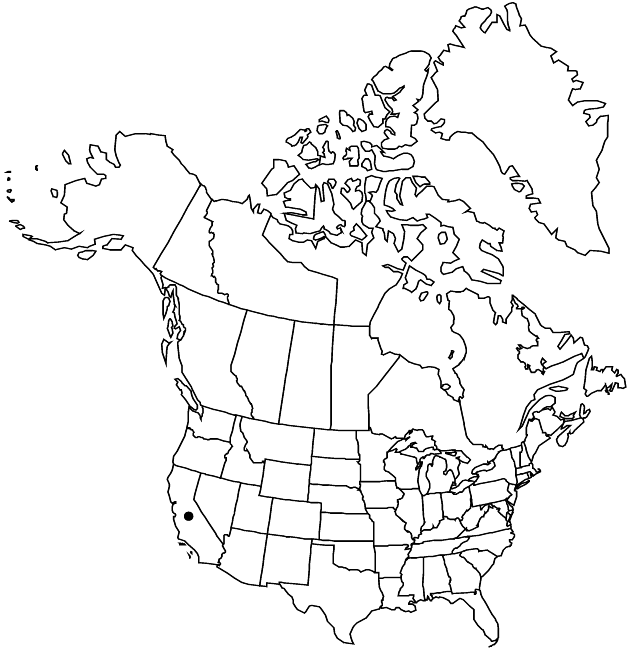Difference between revisions of "Erigeron petrophilus"
Pittonia 1: 218. 1888.
FNA>Volume Importer |
imported>Volume Importer |
||
| (6 intermediate revisions by 2 users not shown) | |||
| Line 6: | Line 6: | ||
|place=1: 218. 1888 | |place=1: 218. 1888 | ||
|year=1888 | |year=1888 | ||
| + | }} | ||
| + | |special_status={{Treatment/ID/Special_status | ||
| + | |code=E | ||
| + | |label=Endemic | ||
}} | }} | ||
|basionyms= | |basionyms= | ||
| Line 16: | Line 20: | ||
}}<!-- | }}<!-- | ||
| − | --><span class="statement" id="st-undefined" data-properties=""><b>Perennials,</b> 10–20(–30) cm; taprooted, caudices woody, branches rhizomelike. <b>Stems</b> usually decumbent-ascending, sometimes nearly erect, sparsely to densely white-villous (hairs loose, thin, often crinkly) or sparsely hispido-pilose (hairs usually stiff, spreading, sometimes antrorsely ascending or appressed; var. viscidulus), usually densely minutely glandular at least distally, sometimes eglandular or obscurely glandular (var. viscidulus). <b>Leaves</b> cauline; blades narrowly oblong to oblanceolate, 10–25 × 1–5 mm, usually even-sized, margins entire, ciliate, faces sparsely to densely villous to hirsuto-villous, usually densely minutely glandular, sometimes eglandular or obscurely glandular (var. viscidulus). <b>Heads</b> (discoid) (1–)2–5(–10) in corymbiform arrays. <b>Involucres</b> 5.5–7(–8) × 8–12 mm. <b>Phyllaries</b> in 3–5 series (sometimes purplish apically), usually glabrous, sometimes with spreading hairs, densely glandular. <b>Ray</b> (pistillate) florets 0. <b>Disc</b> corollas 4–6 mm (throats slightly indurate, not inflated). <b>Cypselae</b> (2–)2.5–3 mm, 2-nerved, glabrous; pappi: outer of setae, inner of 22–30(–35) bristles.</span><!-- | + | --><span class="statement" id="st-undefined" data-properties=""><b>Perennials,</b> 10–20(–30) cm; taprooted, caudices woody, branches rhizomelike. <b>Stems</b> usually decumbent-ascending, sometimes nearly erect, sparsely to densely white-villous (hairs loose, thin, often crinkly) or sparsely hispido-pilose (hairs usually stiff, spreading, sometimes antrorsely ascending or appressed; <i></i>var.<i> viscidulus</i>), usually densely minutely glandular at least distally, sometimes eglandular or obscurely glandular (<i></i>var.<i> viscidulus</i>). <b>Leaves</b> cauline; blades narrowly oblong to oblanceolate, 10–25 × 1–5 mm, usually even-sized, margins entire, ciliate, faces sparsely to densely villous to hirsuto-villous, usually densely minutely glandular, sometimes eglandular or obscurely glandular (<i></i>var.<i> viscidulus</i>). <b>Heads</b> (discoid) (1–)2–5(–10) in corymbiform arrays. <b>Involucres</b> 5.5–7(–8) × 8–12 mm. <b>Phyllaries</b> in 3–5 series (sometimes purplish apically), usually glabrous, sometimes with spreading hairs, densely glandular. <b>Ray</b> (pistillate) florets 0. <b>Disc</b> corollas 4–6 mm (throats slightly indurate, not inflated). <b>Cypselae</b> (2–)2.5–3 mm, 2-nerved, glabrous; pappi: outer of setae, inner of 22–30(–35) bristles.</span><!-- |
-->{{Treatment/Body | -->{{Treatment/Body | ||
| Line 51: | Line 55: | ||
-->{{#Taxon: | -->{{#Taxon: | ||
name=Erigeron petrophilus | name=Erigeron petrophilus | ||
| − | |||
|authority=Greene | |authority=Greene | ||
|rank=species | |rank=species | ||
| Line 62: | Line 65: | ||
|publication title=Pittonia | |publication title=Pittonia | ||
|publication year=1888 | |publication year=1888 | ||
| − | |special status= | + | |special status=Endemic |
| − | |source xml=https:// | + | |source xml=https://bitbucket.org/aafc-mbb/fna-data-curation/src/2e0870ddd59836b60bcf96646a41e87ea5a5943a/coarse_grained_fna_xml/V19-20-21/V20_697.xml |
|tribe=Asteraceae tribe Astereae | |tribe=Asteraceae tribe Astereae | ||
|genus=Erigeron | |genus=Erigeron | ||
Latest revision as of 20:04, 5 November 2020
Perennials, 10–20(–30) cm; taprooted, caudices woody, branches rhizomelike. Stems usually decumbent-ascending, sometimes nearly erect, sparsely to densely white-villous (hairs loose, thin, often crinkly) or sparsely hispido-pilose (hairs usually stiff, spreading, sometimes antrorsely ascending or appressed; var. viscidulus), usually densely minutely glandular at least distally, sometimes eglandular or obscurely glandular (var. viscidulus). Leaves cauline; blades narrowly oblong to oblanceolate, 10–25 × 1–5 mm, usually even-sized, margins entire, ciliate, faces sparsely to densely villous to hirsuto-villous, usually densely minutely glandular, sometimes eglandular or obscurely glandular (var. viscidulus). Heads (discoid) (1–)2–5(–10) in corymbiform arrays. Involucres 5.5–7(–8) × 8–12 mm. Phyllaries in 3–5 series (sometimes purplish apically), usually glabrous, sometimes with spreading hairs, densely glandular. Ray (pistillate) florets 0. Disc corollas 4–6 mm (throats slightly indurate, not inflated). Cypselae (2–)2.5–3 mm, 2-nerved, glabrous; pappi: outer of setae, inner of 22–30(–35) bristles.
Discussion
Varieties 3 (3 in the flora).
Selected References
None.
Lower Taxa
Key
| 1 | Stems and leaves eglandular or obscurely glandular; nonglandular hairs mostly stiff, straight or curved | Erigeron petrophilus var. viscidulus |
| 1 | Stems and leaves densely glandular; nonglandular hairs usually loose, often crinkly | > 2 |
| 2 | Phyllaries with distinctly expanded, purplish area at apices | Erigeron petrophilus var. petrophilus |
| 2 | Phyllaries with apices not purplish and differently colored from proximal portion | Erigeron petrophilus var. sierrensis |
